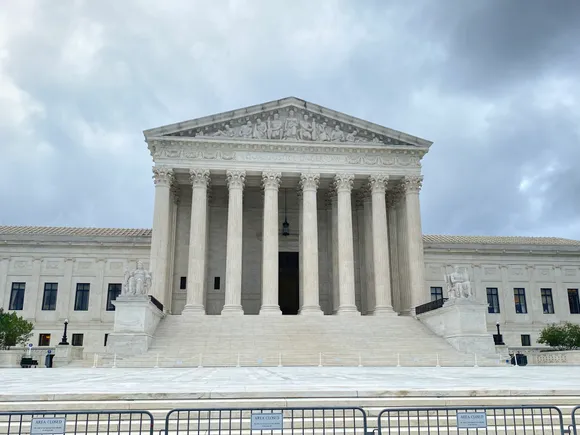Private security companies Citiguard and Metroguard USA face potential liability for allegedly hiring an unfit armed security guard who later fatally shot a Home Depot customer, the customer’s parents claim in an Oct. 2 wrongful death lawsuit against the companies, Home Depot, the shopping center’s owner and operator, the security guard and other unnamed guards.
Per the state court complaint in Medina v. Citiguard, Inc., after shopping at a Los Angeles Home Depot in a high crime area, the customer allegedly became involved in an altercation with a food vendor. An angry mob tried to stop him from leaving, the lawsuit said.
Rather than follow protocol by trying to deescalate the mob, taking down the customer’s license plate number and reporting the incident to law enforcement, security guards joined the mob to block his path, the complaint alleged.
As the customer was slowly and carefully exiting the parking lot in his car, one of the guards drew his gun and shot the customer in the head, according to the lawsuit.
“Had those in charge of hiring and supervising the security guard done their job, [the customer] would be alive today,” the complaint said.
Home Depot spokesperson Beth Marlowe told HR Dive the company could not comment on ongoing litigation. Citiguard did not respond to a request for comment prior to press time.
The question of second-chance hiring
The security guard’s prior criminal convictions highlight the tension employers feel when it comes to second-chance hiring. In recent years, advocates have urged employers facing talent gaps to consider hiring typically overlooked candidates such as those with a criminal history.
For example, formerly incarcerated individuals often bring unique skill sets to prison, such as problem-solving and entrepreneurial thinking, which can help employers grow their businesses, advocates point out.
Also, from a compliance perspective, for most employers, having an across-the-board ban on hiring someone with a criminal record will run afoul of Title VII of the Civil Rights Act of 1964 and U.S. Equal Employment Opportunity Commission guidelines, attorneys have said.
But many employers, concerned about negligent hiring liability, tend to shy away from bringing those with criminal histories on board.
While such fears “are natural given the risk-averse nature of most businesses,” research suggests these fears aren’t necessarily supported by the record, the Council of State Governments explained in a March 2023 report.
For instance, research by the Legal Action Center found that liability is far lower than expected by employers and exists largely in specific jobs with defined risks.
Relevant here, these include jobs that involve contact with vulnerable populations, operation of a motor vehicle, access to financial assets, access to customer homes, the involvement of alcohol — and the use of force or firearms.
‘Foreseeable and preventable’: Reducing compliance risk as an employer
In a negligence hiring case, an employer can be held liable “because they hired someone they knew, or should have known, was likely to harm others in the position for which they were hired,” the Society for Human Resource Management wrote in a November 2023 post.
An employer’s main defense is to act with due diligence and reasonable care when hiring someone, including conducting a background check and individually assessing the candidate, attorneys told SHRM.
Another defense is to show that the harm was not connected to the employer’s alleged negligence — in other words, it couldn’t be predicted, the attorneys said.
In the Citiguard case, the security guard’s actions were foreseeable and “entirely preventable,” and the defendants breached their duty of reasonable care with respect to his employment, the complaint alleged.
Given the “wealth of disqualifying factors,” which publicly available sources made known — such as having his security guard license previously revoked due to criminal convictions, allegations of domestic violence and postings he made on social media suggesting he used hallucinatory drugs — the security guard should never have been employed that day, according to the lawsuit.
Instead, the evidence “should have led to a more thorough and probing investigation into his potential hire,” the complaint said.
And based on that evidence, “reasonable hiring and employment practices should not have led to hiring [him] and then placing him as an armed guard at a high-risk location,” the lawsuit alleged.






Leave a Reply